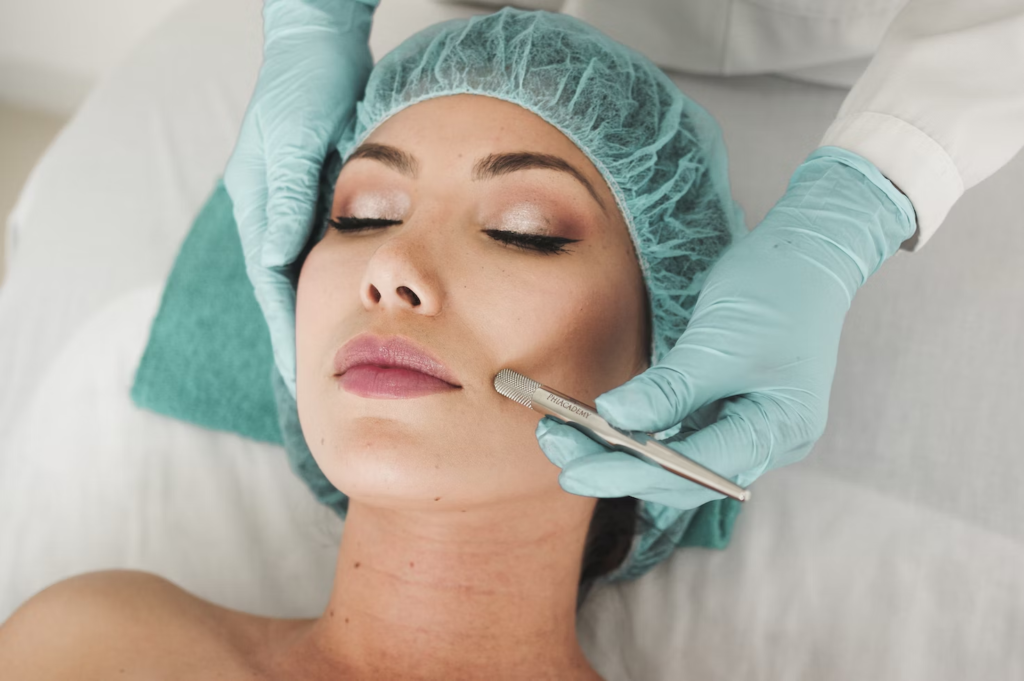Introduction
When it comes to searching for the right medication for treating an infection such as acne, the most common problem is to be able to identify the most efficacious treatment for treating your acne from literally millions of treatment products on the market today. There’s a plethora of lotion washes, creams, gels, spot treatments and the like to choose from, but which one will prove the most effective? Please read on and find out.

Do Acne Treatments Really work for those Infected?
Some strange perspectives
Looking for the right medication to ward off more acne breakouts is indeed frustrating, but isn’t the fact that we are still struggling against acne even more annoying? It should have been done away long ago.
Wrong! It’s still very much with us and make no mistakes, by the looks of things, it may be with us for some time to come.
Acne for adolescents and adults is not an illusion but a very personal and tangible reality and to make things less comforting, it can affect people who are between 20 years of age and those well past their 50s.
People who’ve experienced breakouts of blackheads and whiteheads and found them miserably annoying haven’t really experienced anything so far.
There are also the flare ups of deep painful pimples that often accompany the appearance of adult acne which are much more annoying and of course even more difficult to do away with.
So the only thing that now remains is to try and find out the best treatments that are the most effective in treating the different types of pimples that can affect your skin and of course your health and livelihood.
The cause behind the condition
We can’t just simply ask a question and expect an answer to be provided immediately by someone else. If we are looking for the best medication for acne, we have to find out everything we can about acne.
And there’s no better place to start than knowing what actually causes acne!
What causes acne?
The formation of pimples begins with the accumulation of body oil (sebum) and dead skin cells come together to form a plug that blocks your skin pore (follicle).
Essentially, your skin is able to get rid of its dead cells, but if your body produces too much oil (sebum), the dead skin cells can accumulate and get embedded in your pores.
As the sebum and dead skin cells coagulate in your pores, the bacteria Cutibacterium acnes (also called Propionibacteria acnes eventually find their way into the milieu where they thrive and multiply from the bounty of available sustenance (oil and dead skin cells).
With time, the P. acnes bacteria begins to outgrow its plugged follicle home, causing the area to become inflamed which announces the start of papules, pustules and cystic lesions.
The perfect medication that can deal with this multi-infested acne formation is one that can kill 4 birds with the one stone so to speak.
The medication should be able to do these four cleansing actions:
- Exfoliate the dead skin cells which effectively means, getting rid of the outer layer of the dead skin cell formation
- Suck up the excess oil (sebum) that has also accumulated inside the pore (follicle) with the dead skin cells
- Stop the inflammation caused by the pressure from the expanding substances clogged up in the acne as well as the growing size of the bacteria also trapped inside.
- Kill the bacteria that’s causing all the commotion within and beyond the confined space of the follicle within the pore.

No one-size-fits-all solution
This would of course be the ideal medication for curing acne breakouts, but unfortunately, no one medication has been known to have all these remedial prerequisites all bundled up into the one pill.
Another difficulty is that every patient reacts differently to a particular medication from other patients and in most cases, the effects of the treatment may well get worse before it actually gets better.
So rather than looking for the perfect single medication that can annihilate all the putrid components of acne in its different forms, a combination of sorts appear to offer a realistic solution.
This can be found in the combination of acne self-care for which you’ll be a contributor and the assistance of a dermatologist who can draw up a suitable acne treatment schedule for you to follow.
The help of a dermatologist is indispensible particularly if the occurrence of your acne breakouts frequently take place or is moderate or severe.
What will the dermatologist do?
The first task for you dermatologist to do would be to ascertain the severity of your acne and allot a grade for it.
Your derm will most likely follow this procedure:
- use the grading of from 1 to 4 to signify severity from mild (1) to severe (4)
- ascertain what type or types of acne you are suffering from
- determine the type of medication (oral or topical) that would work best for you
The difference between the medications are as follows:
- Topical acne treatment – this is perhaps the most common type of acne treatment. Killing acne-causing bacteria is the specialty for some while decreasing oil to get rid of acne is the work of other medications.
The ingredients typically found in topical acne medications can include salicylic acid, retinoids, benzoyl peroxide, and antibiotics.
Oral acne treatment – these medications work internally and are usually prescribed by your doctor for the treatment of acne cysts and nodules which are usually red, swollen pimples. They can come as:
- antibiotics that kill bacteria and decrease inflammation
- birth control pills that helps you with your hormonal acne
- isotretinoin, also commonly called Accutane despite the fact that the brand is no longer used.

The best acne treatments available
Listed below are the best acne treatments used for occasional, mild and moderate acne:
Salicylic acid
This acne treatment is especially suitable for preteens infected with pimples which is readily accessible at most drugstores. It’s the active ingredient for “acne wash” or “spot treatment” medications with the main function of dissolving excess oil and defoliating dead skin cells.
Glycolic acid
This treatment is similar in function to salicylic acid having the same ability for gently exfoliating skin and gets rid of dead skin cells clogging up your pores. Like salicylic acid it can also be found in serums, washes, moisturizers, and peels at the local beauty store or drugstore.
Benzoyl peroxide
The main function of Benzoyl peroxide is the effective demise of the C. acnes bacteria that causes breakouts. While effective, the cream and cleansing treatment can render sensitive skin dry and may bleach clothing. The ideal concentration for using this treatment is 2% of it, for treating acne.
Lactic acid
This is also a chemical exfoliant used on the skin as Glycolic acid but is much gentler. It’s the right treatment for people who have sensitive skin but need an exfoliant acid to clear away dead skin cells. It’s also a humectant that draws water to itself making it a hydrating agent. So exfoliants with lactic acid would achieve its purpose without being too hard on the skin.
Retinol
This cream form of this treatment is popular especially for its anti-aging properties while also efficient at clearing up acne. A dermatologist (Rita Linkner,) M.D. has been quoted as saying “Retinoids cause skin cells to turn over at a faster rate, decrease oil production and help exfoliate skin.”
Conclusion
Suffering from acne is a very disturbing, annoying as well as a very embarrassing experience and many of us are unwilling to be caught in a situation where we are overwhelmed with the infection. If you want to avoid getting acne breakouts, you should seriously find out and study the different types of medication available for treating acne breakouts. This article has provided the information you need. All you have to do is implement it. We have bought acne medicines from this reputable source before and recommend them.










